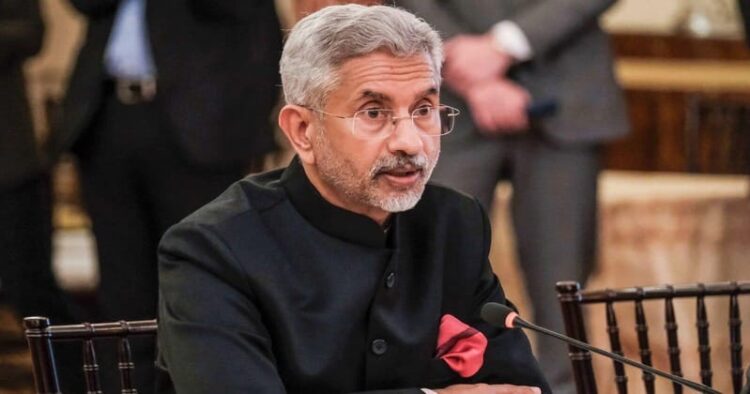External Affairs Minister S Jaishankar stresses how important it is for India to boost its own factories and overall economic strength. He says this is key for making India more influential globally and for competing economically with China. In an exclusive interview, Jaishankar points out the efforts made in the past ten years under Prime Minister Narendra Modi’s leadership to improve domestic manufacturing within the country.
Under Prime Minister Narendra Modi’s leadership, India is experiencing significant changes in its economy. There’s a fresh emphasis on boosting manufacturing within the country, which is seen as a key part of India’s recovery/ resurgence. External Affairs Minister S Jaishankar articulates that this focus on manufacturing is important not only for India’s ability to compete economically but also for increasing its influence worldwide, particularly in the face of intensifying economic rivalry with China.
Jaishankar highlights how India’s strength in making things is closely connected to how influential it is in world affairs. He stresses that when the country’s economy is strong, India will have more power to be confident and active on the global stage. By making more things within the country, India can be stronger in discussions with other countries, especially China, and can stand stronger in the world.
The Minister addresses concerns regarding India-China trade while the border issues are still unresolved. He says that the increasing trade volumes between the two countries are because India didn’t focus enough on building its own manufacturing capabilities in the past. Even though India wants the border situation to improve before having normal relations, trade between the two countries keeps growing. This shows that there are deeper problems that need to be fixed beyond just the border tensions.
Jaishankar agrees that tensions with China at the border are still there. He says that it’s really important for there to be peace along the Line of Actual Control (LAC) for both countries to get along well. He explains that if the border issues are not sorted out, it’s hard for things to be normal between the two countries. So, it’s important to be careful and considerate in diplomatic talks until these border problems are resolved.
Despite trade imbalances and challenges, India has made significant progress in expanding its manufacturing base and reducing dependency on imports, particularly from China. Jaishankar also highlights the significance of efficient infrastructure and a conducive regulatory environment in nurturing a thriving manufacturing sector. He acknowledges past obstacles, including regulatory hurdles and environmental concerns. But he’s hopeful about India’s future because of the energy and skills of its young people.
Jaishankar praises Prime Minister Modi for stressing the importance of teamwork and cooperation among different Government departments. By promoting a more integrated and coordinated approach to governance, Modi has empowered ministries to work synergistically towards common goals, enhancing the government’s effectiveness in addressing complex socio-economic issues.
During PM Modi’s time in office, there’s been a big change in how we run our economy. He’s introduced plans like ‘Make in India’ and ‘Production Linked Incentive’ (PLI) to boost manufacturing here and use less stuff from other countries. These plans show that we’re working hard to make the most of India’s ability to make things, using our large population and technology to grow in a way that lasts a long time.
Jaishankar underscores the pivotal role of manufacturing in shaping India’s foreign policy agenda. He says that when India’s economy is strong because of good manufacturing, it gives the country the power and resources it needs to stand up for its interests worldwide. By improving manufacturing, India can not only compete better with China economically but also have more tools to pursue a confident and proactive foreign policy.
He acknowledges the challenges posed by India-China trade dynamics, especially with the ongoing border issues. But he stresses the importance of fixing the basic problems in India’s manufacturing system. He says we need a plan that deals with both economic and strategic needs because having a strong manufacturing sector is really important for India’s long-term strength in both its economy and its position in the world.
In simple terms, India’s path to becoming economically competitive under PM Modi’s leadership is closely tied to its manufacturing revival. By focusing on making more things, India can boost its economy and have a bigger say in how global trade and politics work. As India faces the challenges of a changing world, PM Modi’s smart leadership keeps everyone feeling hopeful and positive. He encourages everyone to work together and use their skills to make India a great place to live and work. With PM Modi leading the way, India is moving towards a better future, full of opportunities and success, thanks to the hard work and innovative ideas of its people and leaders.



















Comments